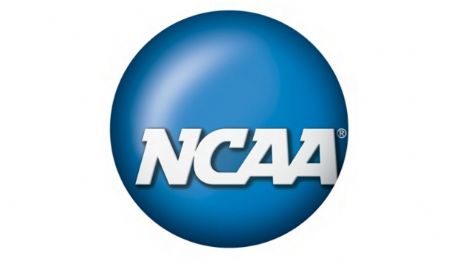This is not going to take too long, everyone, but it does need to be documented and spelled out in a few sentences and several links you are encouraged to briefly check:
Oliver Luck, formerly the athletic director at West Virginia University and a member of the College Football Playoff Selection Committee, recently took a job with the NCAA. Get this: the job concerns regulatory affairs.
HA!
HA HA HA!
HA HA!
Wait, you’re asking — why is a writer openly laughing just a few sentences into a story?
Well, because THIS happened on Wednesday, that’s why. Luck’s athletic program in Morgantown committeed violations across multiple sports. Now, though, Luck gets to be well compensated and given a bit of power in the NCAA’s regulatory apparatus.
Rational people would like to think that Luck might get, you know, dismissed from this post, the same way athletes and programs that run afoul of NCAA regulations get promptly suspended for games (in the players’ cases) or hit with postseason ineligibility (in the programs’ cases).
Yet, that’s not happening, and moreover, anyone familiar with the NCAA knows that’s not happening.
History tells us this. History confirms how mind-blowingly (and mind-numbingly) commonplace this bullspit actually is.

Some guys have all the (Oliver) Luck. Preside over a violation-ridden athletic program, become part of the NCAA’s regulatory team. God bless America!
*
To the link chamber, Batman!
Gene Smith is still the athletic director at Ohio State. He should have been kicked to the curb a long, long time ago for his involvement in this scandal, which you’re almost certainly familiar with.
What you might not remember as clearly is that Smith was given the honor of being the chair of the NCAA Division I Men’s Basketball Committee — aka, the NCAA Tournament Selection Committee — in 2011. Yes, 2011, right when the Ohio State scandal was being uncovered in all its messy detail.
Continuing the circle of NCAA waywardness, when Smith handed over the championship trophy in 2011, he handed it to Connecticut coach Jim Calhoun, whose program committed all sorts of violations in its own right, chronicled here and then also here.
The athletic director at such a program should be punished, right?
Well, UConn athletic director Jeff Hathaway — following Smith’s path on many levels, not just one — was given the honor of succeeding Smith as the Selection Committee chair for the 2012 NCAA Tournament.
You can’t make this stuff up, folks.
Failing upward. Being rewarded for incompetence. The worst features of cozy, protective, good-ol-boy structures are markedly, consistently, pervasively apparent in the NCAA.
A lot of talk is tossed about about how players are supposed to know the rules and have nobody to blame but themselves when they step outside NCAA regulations member institutions have collectively agreed to obey. That’s actually, on the raw merits, a very reasonable and sensible view. None of us should have a real problem with it on its face.
However, that sensible view — know the rules, accept the punishment when it comes along — only works on a larger level when everyone in the vast theater of college sports is both accountable and forced to account for misdeeds.
If players or any one subgroup in a larger community is consistently punished and held accountable, everyone else has to be held just as accountable, just as often. This is not a controversial point. This is not a complicated point. This is something everyone can readily understand.
Yet, what is punishment for some is promotion for others. What is swiftly condemned for one group of people is not only overlooked, but rewarded, for another group.
When Todd Gurley gets hammered, it makes big news. When an administrator off to the side — an ordinary-looking middle-aged guy removed from the games we watch and the Heisman Trophy races we love to talk about during the excitement of a season — sees his program get tagged with all sorts of violations across multiple sports, the same buzz doesn’t exist… not even close.
Yet, the yawning chasm between one standard of punishment over here (Todd Gurley) and the continuing practice of rewarding waywardness over there (Oliver Luck) is something that’s impossible to ignore.
Yes, players knew the rules and got punished… by the likes of Oliver Luck and other power brokers who protect their own.
This happens all the time in American power circles far more consequential than the NCAA. It’s one of the central reasons this country is in such a fundamentally precarious position… but that’s a topic not fit for a college sports blog.
What is a topic fit for a college sports blog? The one that’s been examined today: why the NCAA can’t be taken seriously. Not when Oliver Luck, Regulatory Employee, is the same person who presided over a violation-ridden program.
God bless America — it’s a great country for the likes of Oliver Luck, Gene Smith, and Jeff Hathaway. Wouldn’t we all love to be rewarded for breaking rules?
Todd Gurley — like Dez Bryant and countless others before him — is wondering how this could possibly happen.
Welcome to the real world, Todd. It’s a cruel one.
